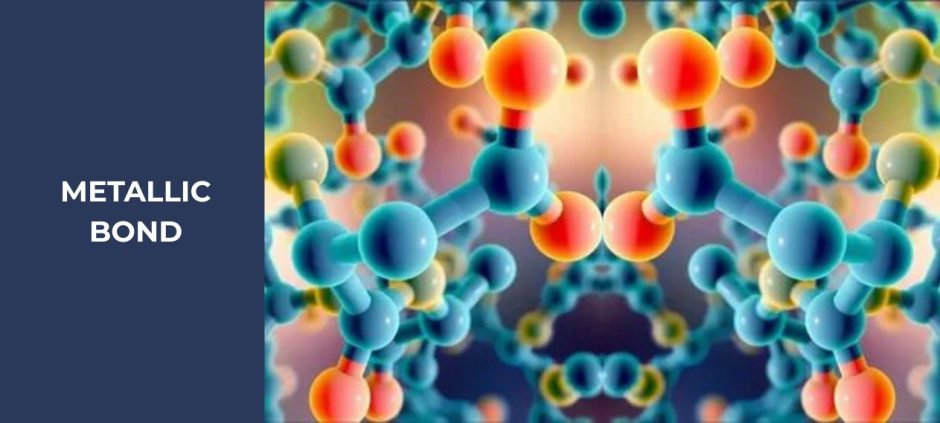Ever noticed how your karahi heats evenly, your stainless-steel tawa doesn’t bend under heat, or your bike engine keeps roaring for years? You probably never thought about the tiny invisible force behind all this, the metallic bond. It’s the secret “glue” that holds metals together, giving them strength, durability, and even the ability to conduct electricity.
And guess what? It’s shaping almost everything we touch in Pakistan, from cookware to vehicles and electronics.
What Is a Metallic Bond?
Let’s make this simple: think of a metal as a crowded party of atoms. Normally, atoms like to keep their electrons to themselves, but in metals, the outer electrons are free to float around, like party-goers moving freely in a big hall. These roaming electrons create a sea of electrons that holds all the metal atoms tightly together.
In plain words, metallic bonds are like superglue made of electrons. They give metals their strength, let them bend without breaking, and let electricity and heat pass through easily. Without this invisible glue, your steel utensils, cars, or electrical wires wouldn’t last a day.
Metallic Bond in Pakistani Steel and Cookware
Metallic bonds aren’t just science jargon; they affect things we use daily.
Steel Mills Across Pakistan: From Karachi to Lahore, steel factories produce strong, flexible steel thanks to metallic bonds. The electron “glue” allows atoms to slide past each other without breaking, making steel both tough and workable. That’s why our bridges, buildings, and beams don’t collapse under pressure.
Cookware That Lasts: That shiny stainless-steel karahi on your stove? Heat spreads evenly because metallic bonds let energy flow fast. And when you press, bend, or clean it, it keeps its shape, again thanks to that sea of electrons holding everything together.
How Metallic Bonds Make Electronics and Vehicles Durable
Let’s zoom into modern life. From your mobile phone to your motorbike or car, metallic bonds make everyday devices reliable and long-lasting.
- Electronics: Copper wires, aluminium parts, and steel frames use metallic bonding to conduct electricity efficiently. That’s why your charger or circuit board works smoothly without overheating.
- Vehicles: Metal parts in cars, motorbikes, and trucks rely on metallic bonds for:
- Strength: Absorbs shocks from potholes and heavy loads.
- Malleability: Can bend or shape into frames, panels, and engine parts.
- Corrosion Resistance: Alloys like stainless steel resist rust, keeping vehicles durable under Pakistan’s varying weather.
Even in Pakistan, scientists are exploring new materials to make electronics and vehicles stronger. For example, Awais Ahmad, a Pakistani scholar, recently recognised among the world’s top chemists, is advancing our understanding of metals and bonds, paving the way for smarter, longer-lasting designs.
Why We Should Care About Metallic Bond
Here’s why this “invisible glue” matters to everyone:
- Conducts Heat & Electricity efficiently
- Strong & Flexible: Doesn’t break easily under stress
- Durable: Metals last longer in cookware, vehicles, and electronics
- Supports Innovation: Alloys and advanced materials improve performance
Metallic bonds aren’t just chemistry; they’re the backbone of modern life. They quietly keep your daily life running smoothly, from cooking a delicious biryani to riding safely on your motorbike.
Closing Insight
Next time you touch a tawa, ride a bike, or plug in your phone, remember the tiny electrons working like a sea of glue, keeping everything strong and functional. That’s the magic of the metallic bond, simple science with huge real-world impact.
If you enjoyed learning how metallic bonds shape our lives, share this article with friends or family who love science and everyday innovations. Dive deeper into Pakistani scientific achievements and see how science powers the nation.











